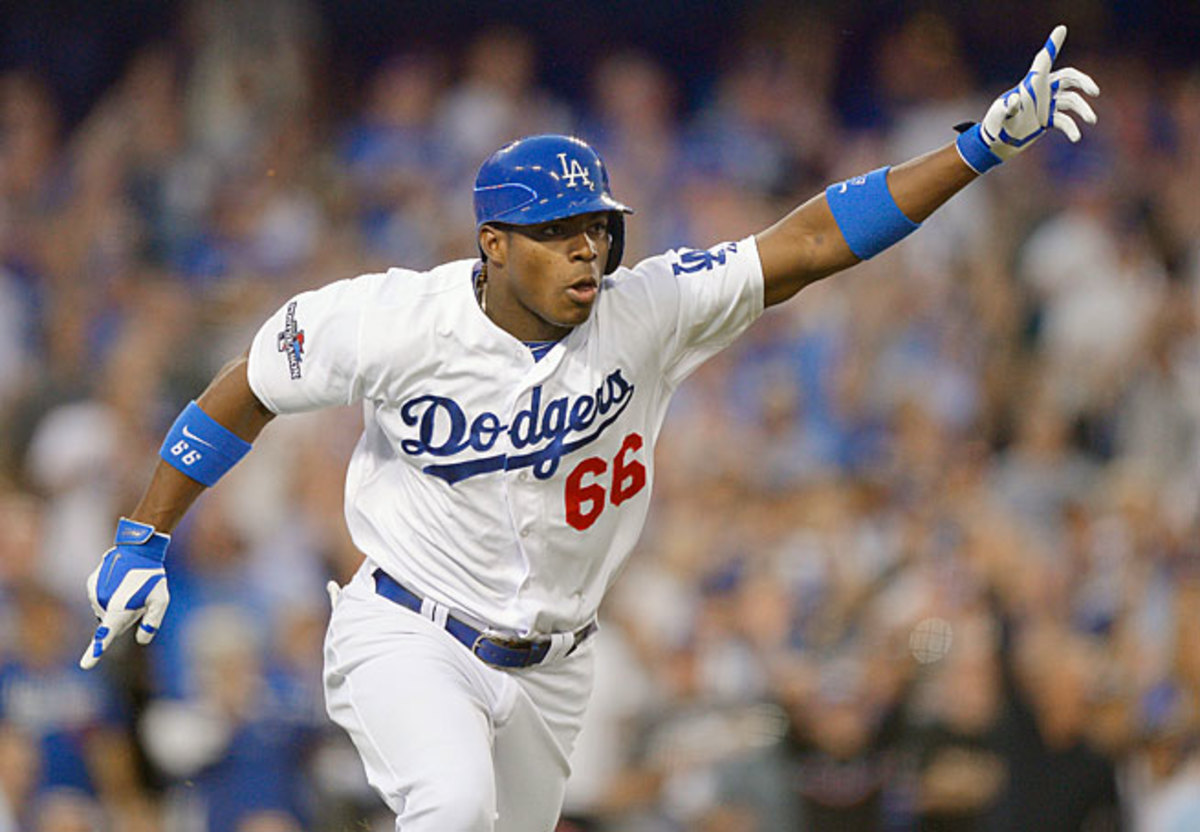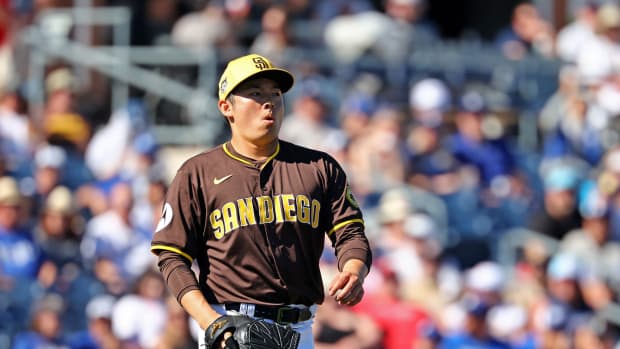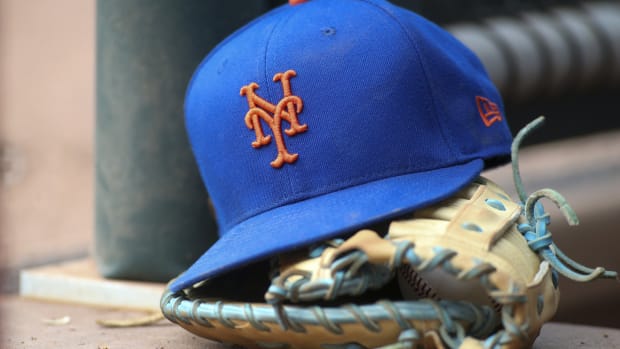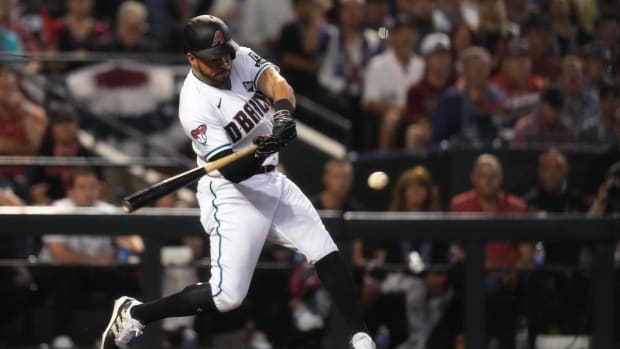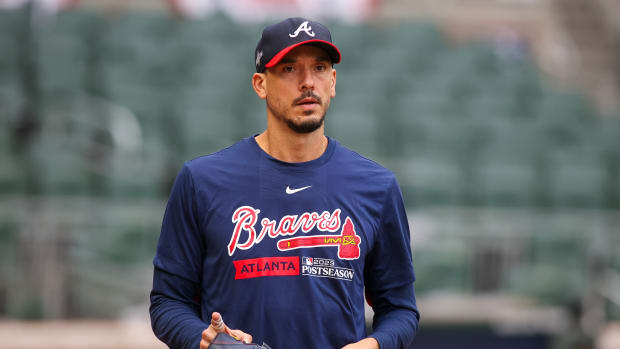Exciting or infuriating? Understanding the still-mysterious Yasiel Puig
The best thing about the Yasiel Puig phenomenon is that we still know almost nothing. His early days, baseball and otherwise, sit behind the ragged Cuban curtain of embargo politics and Castroite impedimenta, and his 2012 defection remains a cocktail of charged terms -- smuggler, speedboat, Mexico -- that hint at much and reveal little. He speaks only Spanish, so middle America gets no purchase on his personality, and what he says, anyway, hangs heavily on the themes of thanking God, appreciating his teammates and having fun. Nothing wrong with any of that. He even seems to mean it.
Still, the effect, when combined with Puig's unholy abundance of talent, is that of an alien in our midst, less from another country than another planet. The Dodgers, of course, wouldn't even be in this National League Championship Series, down 3-games-to-2 to the Cardinals, if Puig hadn't been called up in June, and no amount of missed cutoff men, no mini-slump since, has dampened the wonder at what he might do. Even during his 0-for-11 start against St. Louis, Puig tossed off enough otherworldly gems -- his double-play bullet of a throw, racing to the right and fired off his back foot, to nail Jon Jay at first base in Game 1; that diving stab, with the wind knocked out of him, of a one-hop line drive in that same game -- to ensure that we never take our eyes off him.
This doesn't happen often. Ichiro was the last information-age athlete to provide mesmerizing gifts without accompaniment -- no talk-show-ready quips, no desire to explain -- but he was also a vet on arrival. Puig is 22, a rookie, a star happening in real time. You could almost see him learning during his first at-bat in Game 3, a patient, well-worked strikeout, his seventh of the series. What happened next, in the fourth inning, wasn't a shock. How it happened was.
Adam Wainwright pitched, Puig swung, the ball flew deep into right. He flipped his bat, threw up his hands in triumph and stared at the ball, sure it was a home run. Only after it bounded off the bullpen wall did he start to run. Then Puig began running faster, even as Cardinals rightfielder Carlos Beltran gathered the ball in, then faster as he rounded second -- and then he threw up his hands again, two steps before touching third. He somehow managed to finish with a stand-up triple. It was, next to Usain Bolt's setting of that world record while slowing down, about as absurd a display of greatness as you'll ever see.
WATCH: Puig admires his shot and still legs out a triple
Traditionalists, columnists, old-schoolers nationwide, of course, were infuriated. Puig had broken baseball's "code", had displayed "disrespect for the game", had "shown-up" his opponent. Others rallied to his defense: Puig was excitable, emotional and, most important, fun to watch. The Cardinals tried to dismiss the moment as dumb exuberance, the immature act of a player who hadn't had enough seasoning -- just 63 games! -- in the minors.
"I just think he doesn't know," the proper way to act, Beltran said. "He must think that he's still playing somewhere else."
It wasn't meant as a compliment. But Beltran nailed it more than he knew; within that "somewhere else" lay much of the truth that explains Puig. Cuba, the final Cold War vestige, is a country like no other: Indeed, another world. It's a place where the so-proud populace is highly literate, wholly frustrated and scared that the world will leave them behind. Where waiters make more money than doctors. Where neighbors spy on neighbors, and Fidel Castro -- astoundingly -- lives on.
"It's a different country, a different system," says Pittsburgh Pirates bullpen coach Euclides Rojas, who in 1994, after becoming the greatest reliever in Cuban history, spent four and a half days on a raft in the shark-infested Florida Straits in his bid to defect. Rojas' sisters still live in Havana. "The Empire of Fear: We always called it that," he says. "The people are afraid to talk, afraid to express what they feel because they simply go to jail.
"The only way to understand that is if you lived there. I say things like that to friends of mine here in the United States and it's hard for them to understand -- and I don't blame them."
Cuba, too, is a place where baseball is played with screaming, drum-pounding exuberance, where every hit is cause for outsized celebration because, yes, everybody likes to win, but also perhaps because a stadium is one of the few places on the island where a man can express himself -- be himself -- freely. One of the greatest outfielders ever was Villa Clara's Victor "El Loco" Mesa, the current national team coach, who piled up hits while laughing and taunting pitchers from the base paths. Puig, born just as Cuba was entering its "Special Period" of post-Soviet depression, grew up as Mesa's career wound down. He has yet to see why any of this is a negative.
"In Cuba you always see a lot of emotion on the field: Everyone is really giving it their best," Puig said after Game 3. "The people in Cuba are born to play baseball, and that's what you see on the field mostly."
With his wife and infant son, Rojas was picked up by a cutter and then lived for six months on a refugee camp at the U.S. base at Guantanamo. His was one of the more extreme versions of that decade's exodus of athletes; the stories of Yankees star Orlando "El Duque" Hernandez and his brother Livan, and now Reds fireballer Aroldis Chapman and A's slugger Yoenis Cespedes, are but variations on an old theme. By all reports, Puig himself tried to defect numerous times before succeeding, and found himself banned from playing his last season there. The hottest free agent in the majors this winter figures to be slugger Jose Dariel Abreu, the pride of Cienfuegos, who defected in August.
Odd, though: More often than not, in the process of plotting and escaping, the Cuban player loses some of that original kinetic joy. Baseball, used by the regime as both carrot and stick, has in return been used as vessel, tool, the way to get out and feed a family. Once in America, the importance of the game's "code" is hammered into them, another reason not to give oneself away.
El Duque never recovered his youthful ebullience. Success made the great Yanqui insular, smaller; the adjustment is like a sudden drop into a tub of ice. Who to trust? What does that man with the notebook and pen want? What's an ATM? Why does that toilet flush without anyone touching it? Young as he is, Puig is one of the few who made it with that spirit intact. Whether it lasts is another question entirely.
"It was hard to understand the culture and the customs in the U.S," Rojas says. "The food is different. Sleeping in air-conditioning is different; most Latin countries don't have that. Hot water when you go to the shower? No chance. And the language: People are talking and you don't understand.
"It took me two years, being a grown-up man with my family here, to settle down. Even when I was in baseball and I had a lot of people trying to help me, it was real hard. People tried to convince me to open an account and have a credit card -- and I said, 'No, I don't want no plastic in my pockets: I want the cash' -- the first time I was paid. And I was a grown man."
Forever, it seemed, there was a great divide between those players who left Cuba and those who stayed behind because of fear or love of family or country. But the posturing of years past seems to have softened: Players once labeled "traitors", like Mets shortstop Rey Ordoñez, have been allowed to return to the island, and this past summer a team of Cuba-based players from the Havana powerhouse Industriales came to Florida to play exhibitions against those who'd defected. Old friends spoke for the first time in decades.
"Ten years ago, there was no way that was going to happen," says San Diego Padres vice president Omar Minaya, who has been scouting Cuba for more than 20 years. "Just the fact that that game went on and guys are going back to Cuba? Things are different. Maybe things can get to the point where relations get better. There seems to be more dialogue."
Who knows? Puig's wild success may prove a tipping point. Just before the playoffs, on Sept. 28, 2013, Cuba announced that athletes from all sports would soon be allowed to sign contracts with foreign leagues. The American trade embargo -- and the regime's caveat about athletes still living up to homebound "commitments" -- leaves matters vague enough so that words like "defector" and "raft" might still have their uses. Rojas, in recent contact with people on the island familiar with the plan, doesn't believe that the regime will open a new era of free-flowing, free-agent Cubans anytime soon.
"The government sees that as an opportunity to make money," he says. "I won't say the names because they would be in danger, but that's what they say: The government will allow some players to come here, but they get paid -- and then pay whatever they want to the players."
Remember that the next time you see Puig celebrating before he should or hitting the dirt to avoid a heater to the chin while someone in a suit opines, "He had that coming...." Get out of Cuba? Sign a $42 million contract, put up a rookie season like few ever, crack a slump-busting, perhaps series-turning, home ru... -- no, triple?
You'd throw your hands into the air, too. You might just do it twice.
S.L. Price is a Sports Illustrated senior writer and the author of the book, Pitching Around Fidel: A Journey into the Heart of Cuban Sports, which will be reissued by University Press of Florida in March.






























